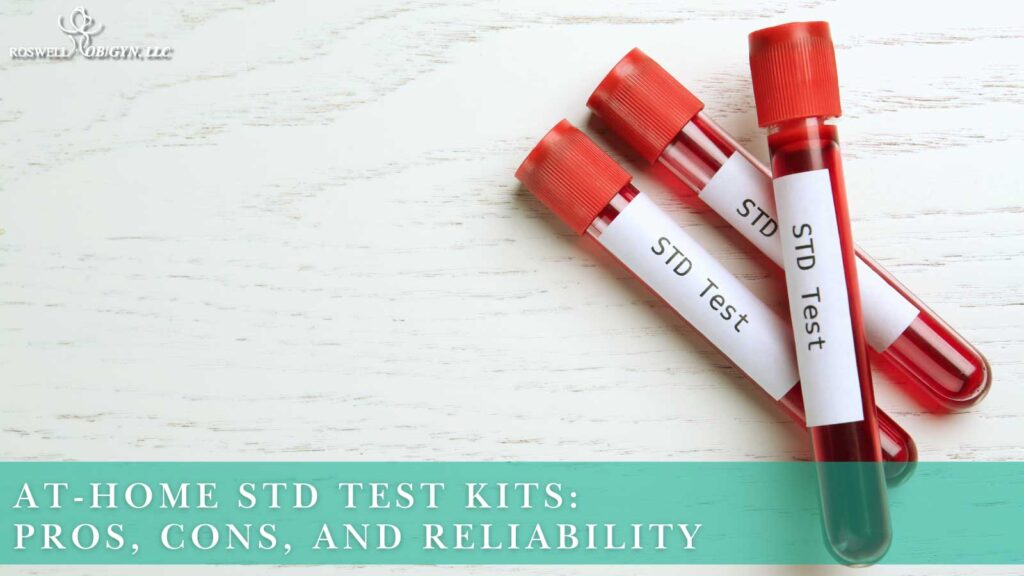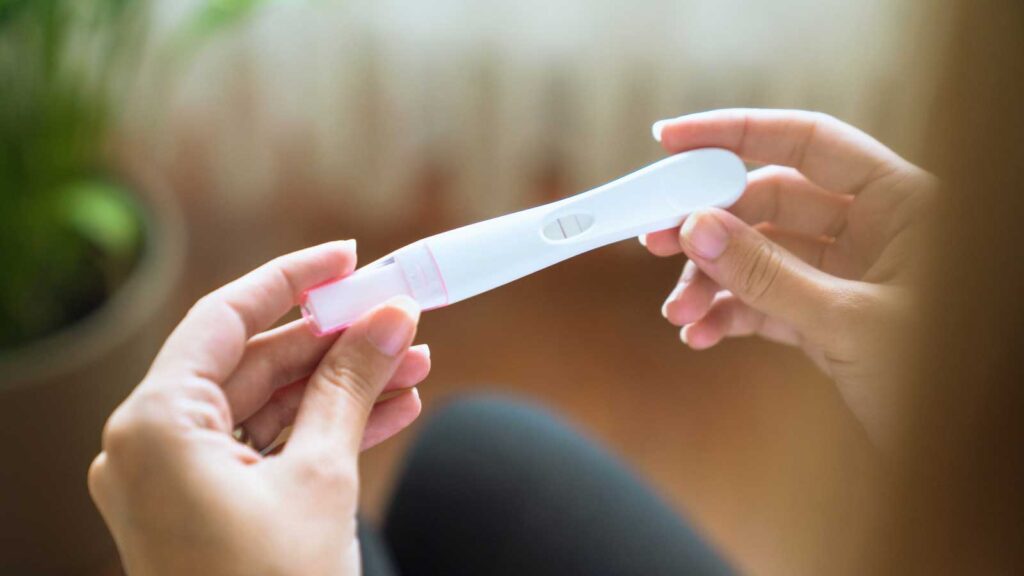
At-home STD testing has revolutionized sexual health screening by offering women privacy and convenience that traditional clinic visits can’t always provide. These kits serve as an accessible entry point for women who might otherwise delay testing, but understanding their capabilities and limitations remains crucial for making informed health decisions. While home testing offers valuable benefits, knowing when these tests are practical and when visiting an STD clinic becomes necessary ensures you receive the most appropriate care for your specific situation.
What At-Home STD Tests Can (and Can’t) Detect
Home STD test options have expanded to cover many common infections while maintaining reasonable accuracy for specific conditions. These kits primarily focus on bacterial infections, such as chlamydia and gonorrhea, which respond well to simple collection methods.
However, comprehensive panels now include some viral testing options. Understanding available tests and FDA standards helps you select reliable options that provide accurate information about your sexual health status.
Available Tests and Sample Types
Most at-home STD testing kits use different sample types depending on the infections being screened:
- Urine samples:
- Primarily used to detect chlamydia and gonorrhea, providing an effective method for screening these common STDs.
- Blood tests (finger-stick):
- Used to screen for syphilis, HIV, and hepatitis B, offering an efficient way to detect these infections.
- Self-collected vaginal swabs:
- Helpful in identifying bacterial vaginosis, yeast infections, and certain STDs. Proper collection technique is crucial for ensuring accuracy.
- Comprehensive home STD panel tests:
- Screen for up to eight different infections, combining multiple sample types for broader coverage.
- Some panels focus on common bacterial infections, while others include viral testing, which may be less reliable when performed at home.
Why FDA Approval Matters
FDA-approved home STD test kits undergo rigorous validation to ensure accuracy and reliability, featuring clear instructions and laboratory partnerships that meet clinical standards. These approved options typically target specific infections like chlamydia, gonorrhea, and HIV, where home collection methods have demonstrated effectiveness.
You’ll find these tests through major retailers and directly from manufacturers who maintain proper quality control and result reporting systems. Unregulated testing options flood the market with inconsistent quality and questionable accuracy, often making broad claims about comprehensive screening without proper validation.
These tests may lack appropriate laboratory partnerships, clear result interpretation, or follow-up support for positive results. Choosing FDA-approved options ensures reliable results that healthcare providers trust when developing treatment plans.
Advantages of Home Testing
Home testing eliminates barriers that prevent women from getting regular STD testing, particularly those related to scheduling, privacy concerns, and geographic accessibility. The convenience factor allows for testing on your schedule, without requiring time off work or childcare arrangements, while maintaining complete privacy throughout the process.
Privacy and Convenience Benefits
Complete privacy represents the most significant advantage of home STD testing, allowing sample collection in familiar surroundings without needing to explain one’s needs to anyone else. You avoid potentially uncomfortable conversations with staff, eliminate waiting room anxiety, and maintain total control over who knows about your testing decisions.
Results are typically delivered through secure online portals or encrypted emails, ensuring that health information remains completely private until you choose to share it with healthcare providers.
Convenience extends beyond privacy to include flexible timing and location options that traditional STD clinics cannot match. You can collect samples at your convenience, without rushing through appointments or coordinating with clinic hours.
This flexibility proves especially valuable for women with demanding schedules, caregiving responsibilities, or transportation challenges that make clinic visits difficult to arrange.
Accessibility for Different Populations
Women in remote areas often face significant barriers accessing STD testing center locations, making home testing a crucial health resource for those living far from urban medical facilities. These tests eliminate travel time and associated costs while providing access to laboratory-quality screening that might otherwise require long trips to specialized clinics.
Young adults who feel uncomfortable discussing sexual health with family physicians find home testing provides necessary privacy and autonomy over healthcare decisions. Women with mobility challenges or chronic health conditions that make clinic visits physically demanding benefit from home testing accessibility. The ability to test without leaving home removes transportation barriers and reduces the physical demands of seeking sexual health screening, ensuring that health limitations don’t prevent regular testing routines.
Major Drawbacks and Limitations
Home STD testing comes with significant limitations that can impact the accuracy of results and overall health management approaches. User error during sample collection represents the most common problem, while timing issues and incomplete screening panels can lead to false reassurance or missed infections. Understanding these limitations helps you use home testing appropriately while recognizing when professional evaluation becomes necessary.
Limitations and Risks to Keep in Mind
Home STD testing comes with significant limitations that can impact the accuracy of results and overall health management approaches. Accuracy can be affected by timing, sample collection, or shipping: Sample collection mistakes occur frequently with home STD test kits, particularly when instructions aren’t followed precisely or samples become compromised during shipping.
Inadequate sample collection, contamination, or delays in mailing samples can all lead to inaccurate results that don’t accurately reflect an individual’s actual health status. Unlike STD clinics, where trained professionals handle collection, home testing relies entirely on your ability to follow detailed instructions without guidance or quality control.
Timing plays a crucial role in STD testing accuracy, with many infections requiring specific detection windows that home test instructions may not adequately explain. Testing too early after potential exposure can yield false negative results, while some diseases, such as herpes, require testing during active outbreaks for accurate detection. Without guidance from a healthcare provider on optimal testing timing, you may receive misleading results that don’t accurately reflect your infection status.
- Limited range of detectable infections: Most home test kits focus on common bacterial infections, often missing less frequent but more severe conditions, such as trichomoniasis, pubic lice, and certain strains of HPV. Comprehensive clinical screenings can detect these conditions, filling in the gaps that at-home tests may miss.
- No in-person symptom evaluation: Home tests cannot assess symptoms or physical findings that might indicate infections not covered by the standard panels, such as unusual discharge or pain during intercourse.
- Positive results require clinic follow-up: If a home test produces positive results, you will still need to visit an STD testing center for confirmation, treatment, and partner notification guidance. Many home testing services offer limited support for positive results, leaving you to manage treatment and communicate with your partner independently. This lack of professional support creates care discontinuity, which can delay treatment and increase the risk of transmission.
How Accurate Are They?
Reliability varies significantly among home STD testing options, with FDA-approved tests generally matching the accuracy of clinic-based tests for specific infections, while unregulated options may produce unreliable results. Bacterial infections, such as chlamydia and gonorrhea, typically test well at home when samples are collected and handled correctly, whereas viral infections and complex conditions may require professional evaluation for an accurate diagnosis.
Accuracy rates for home STD test kits by infection type:
- Chlamydia and gonorrhea: Home testing kits achieve 95-99% accuracy, mainly when FDA-approved options are used correctly. These are among the most reliable home-use tests available.
- HIV testing: Home collection methods, particularly finger-stick blood tests, demonstrate excellent accuracy. These methods have been extensively validated for reliability.
- Syphilis testing: While home testing can be accurate, it may miss early-stage infections that professional screenings would detect. Early detection is crucial for treatment.
- Herpes testing: Herpes testing through home kits is more challenging and generally requires sampling during an active outbreak. Many women prefer professional evaluation to ensure accuracy.
- HPV testing: Reliable home STD test kits for HPV are generally not available. Proper cervical cell collection requires professional techniques and specialized lab processing.
- Trichomoniasis and parasitic infections: These infections are difficult to detect accurately with home testing methods, which may lead to false negatives or inconclusive results.
Several key factors can lower the accuracy of at-home STD tests. The most critical factor is sample quality; problems can arise from improper collection, contamination, or issues during shipping, such as temperature fluctuations or processing delays. These variables are eliminated at an STD clinic, where samples are collected and processed in a controlled environment.
Additionally, individual health factors can impact test results. Things like recent antibiotic use, the timing of your menstrual cycle, or the presence of other infections may affect reliability in ways home test instructions can’t address. A healthcare provider at a testing center can account for these variables and adjust the testing approach to fit your specific situation.
ALSO READ: Does a Pap Smear Test for Sexually Transmitted Infections?
Professional vs Home Testing Decisions
Choosing between home and professional STD testing depends on your specific circumstances, health history, and screening complexity needs. Home testing is adequate for routine screening of common infections when you’re asymptomatic and have no particular risk factors.
In contrast, professional testing becomes essential when symptoms are present or a comprehensive evaluation is required. Understanding when each approach serves you best ensures that you receive appropriate care while maximizing convenience whenever possible.
Home testing works best for:
- Routine screening of chlamydia and gonorrhea in asymptomatic individuals
- Women in stable relationships who want privacy for regular screenings
- Young adults or first-time testers seeking a less intimidating, more accessible option than clinic visits
- Individuals with multiple partners who need convenient and private frequent monitoring
- Women with busy schedules, caregiving responsibilities, or transportation challenges
Clinical testing is essential when:
- You have symptoms like unusual discharge, pelvic pain, or other concerning signs
- You’ve had known exposure to STDs or partners with confirmed infections
- You have immune system issues, are pregnant, or have other health conditions requiring professional oversight
- You need comprehensive gynecological services that include STD screening as part of routine women’s health care
- You need comprehensive screening for less common infections not covered by home tests
- You require immediate treatment and partner notification guidance
Prioritizing Your Sexual Health
Your sexual health deserves comprehensive, professional care from experienced healthcare providers. While home testing offers convenience and privacy, it can’t replace the expertise, accuracy, and personalized attention you get from dedicated women’s health specialists who understand your unique needs and concerns.
Regular screenings and professional guidance ensure you maintain optimal sexual health and address any issues with confidence and appropriate medical support. Ready to prioritize your health with confidence?
Contact Roswell Ob/Gyn today to schedule your confidential STD testing appointment at one of our conveniently located offices in Alpharetta, Atlanta, Canton, or Cumming. Our compassionate team provides discreet, professional care, often with same-day results and immediate treatment options when needed.



